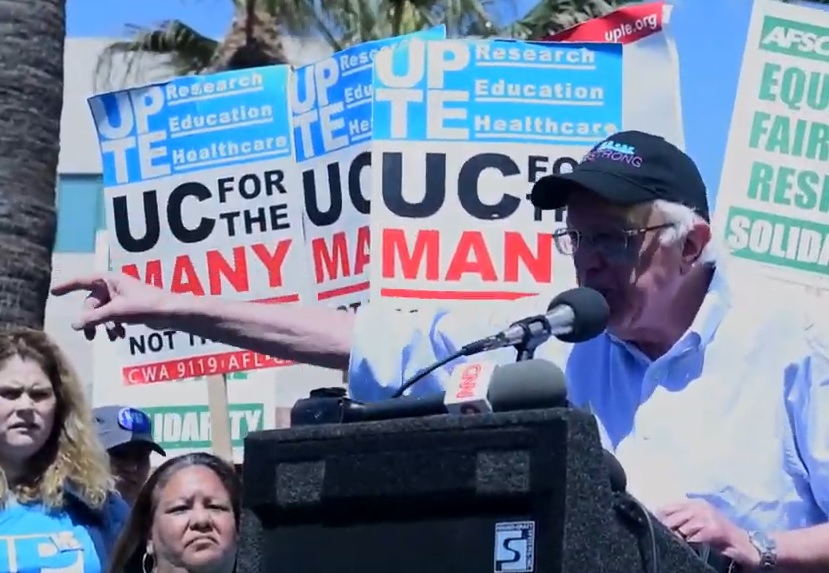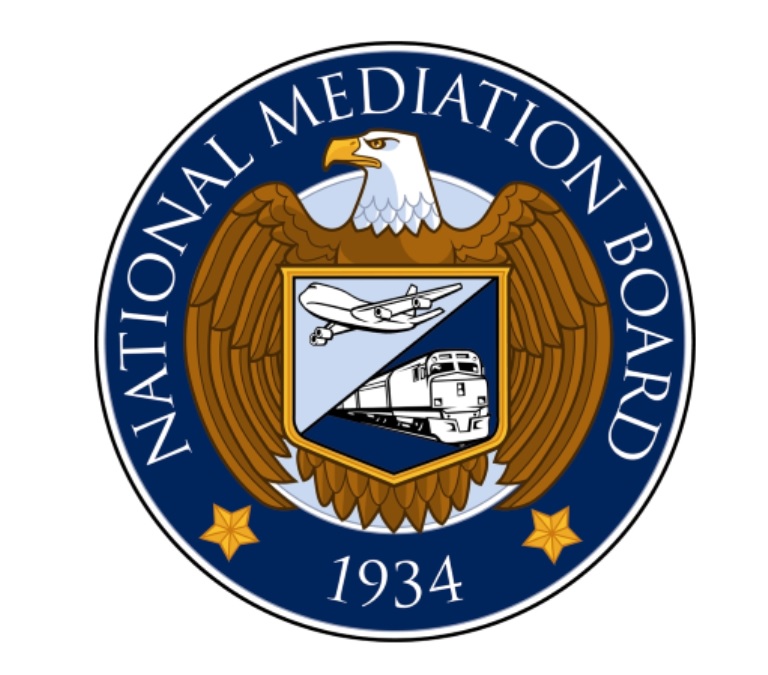Flight Attendant Sues Transport Union for Religious Discrimination
The following article is from the National Right to Work Legal Defense Foundation’s bi-monthly Foundation Action Newsletter, January/February 2021 edition. To view other editions or to sign up for a free subscription, click here.
Flight Attendant Sues Transport Union for Religious Discrimination
Please stow your religious objections: TWU union bosses forced Allegiant Air flight attendant Annlee Post to fund the union in violation of her religious beliefs and federal law.
KNOXVILLE, TN – Allegiant Air flight attendant Annlee Post filed a federal lawsuit in November against Transport Workers Union of America Local 577 (TWU) because the union refused to accommodate her religious beliefs. She received free legal aid from National Right to Work Foundation staff attorneys.
Post is a Christian, and she objects to funding the TWU on religious grounds. As recognized in the 2015 EEOC v. Abercrombie & Fitch Supreme Court decision, Post is not required to satisfy any special requirements to merit religious accommodation under Title VII of the Civil Rights Act of 1964.
To exercise her rights, Post sent two letters to union officials making them aware of her objection and asking that her dues payments be redirected to charity.
EEOC Issues “Right to Sue” Letter to Union Objector
When TWU officials refused this request, she filed a charge with the Equal Employment Opportunity Commission (EEOC) against the union.
The EEOC was unable to resolve Post’s charge, but it issued a “Right to Sue” letter in August 2020, allowing her to file a federal lawsuit against the union to protect her rights. Post then filed a complaint in federal court alleging TWU officials illegally discriminated against her by refusing to accommodate her and threatening to revoke her bidding privileges.
Bidding privileges control a flight attendant’s ability to schedule trips, work, vacations and days off. Post asked the court for an order stopping TWU officials from requiring her and other employees to pay union fees that violate their sincere religious beliefs.
Post’s lawsuit also alleges that union officials violated the United States Constitution’s First and Fourteenth Amendments, which require union officials to follow specific procedures to demand forced dues payments. The union did not follow those procedures here.
Union officials did not provide a notice of how the forced-fee amount was calculated and an audit of the union’s financial records. Nor did they give a notice of the procedure to challenge the fee amount.
Federal Law Prevents Union Threats to Workplace Privileges
Even though she lives in Tennessee, which has enacted Right to Work protections so workers who object to union membership can freely abstain from funding union activities for any reason, Post is subject to the Railway Labor Act (RLA) because she works for an airline.
The RLA overrides state Right to Work laws and allows union officials to compel union fees, but only “as a condition of continued employment.” The RLA does not permit forced-dues payments based on any other condition — such as bidding privileges. Post’s Foundation staff attorneys argue that TWU’s monopoly bargaining agreement with Allegiant is invalid because it requires dues payments to maintain bidding privileges, whereas payment “as a condition of continued employment” is the only legal forced unionism agreement under the RLA.
“Annlee Post and others like her should not have to choose between privileges at work and their religious beliefs,” said National Right to Work Foundation Vice President Patrick Semmens. “TWU bosses knew about Ms. Post’s objections, but refused to accommodate them as longstanding federal law requires. They instead threatened to take away her bidding privileges, simply because she would not fund their organization in violation of her religious faith.
“This case is a reminder of why no worker should be forced to fund a union with which he or she disagrees, no matter whether their objection is religious or for any other reason,” Semmens said.
Union-Label Biden Labor Board Appointee Moves to Scuttle Foundation Cases
The following article is from the National Right to Work Legal Defense Foundation’s bi-monthly Foundation Action Newsletter, March/April 2021 edition. To view other editions or to sign up for a free subscription, click here.
Unprecedented: Biden removes NLRB top prosecutor despite 11 months left on his term
WASHINGTON, DC – With National Right to Work Foundation staff attorneys having won numerous National Labor Relations Board (NLRB) cases in recent years curtailing coercive union practices, union bosses pushed the Biden Administration to take unprecedented measures to protect Big Labor’s power over rank-and-file workers.
In January, top union bosses, including Service Employees International Union (SEIU) chief Mary Kay Henry, formally demanded that upon taking office President Biden make the unprecedented move of removing NLRB General Counsel Peter Robb, despite nearly a year remaining on his term. Union officials were furious Robb had frequently sided with Foundation-backed employees in many cases during his tenure, including cases in which workers successfully challenged union boss demands that workers subsidize their spending to put Biden in the White House.
Just 23 minutes after taking office on January 20, in response to Big Labor’s demands, Biden took the legally dubious action of removing Robb. Robb’s Senate-confirmed term runs through November 2021.
In the 85-year history of the NLRB, no previous NLRB General Counsel had ever been fired before their four-year term — meant to protect the office from political pressure — expired. For example, Robb’s predecessor, Obama-era NLRB General Counsel Richard Griffin, served almost a full year into Trump’s presidency to complete his term.
Following Robb’s unprecedented removal, Biden designated union partisan Peter Ohr as “Acting General Counsel.” Within days of his installation, the ersatz General Counsel moved to undo actions taken by Robb in Foundation-backed cases, in each instance reversing course to the benefit of Big Labor officials.
On January 29, Ohr ordered Seattle NLRB officials to stop prosecuting the Embassy Suites Pioneer Square hotel and UNITE HERE Local 8 union officials for making a backroom agreement designed to unionize housekeepers through a coercive “Card Check.” The “Card Check” bypassed an NLRB-supervised secret-ballot election. The very next day after Ohr’s order, Boston NLRB officials also pulled their prosecution of Boston Yotel and UNITE HERE Local 26 officials in a similar case brought by four Foundation-represented housekeepers.
Biden’s “Acting” Appointee Targets Foundation Cases Scheduled for Trial
In each case, Foundation staff attorneys were prepared to argue at trial that the “top-down” agreements for “Card Check” were illegal and tainted the installation of the union. But by pulling complaints weeks prior to when trials were set to begin before Administrative Law Judges (ALJs), Ohr blocked the cases from even being heard.
Those orders were then followed by a flurry of other activity by Ohr that included instructing local NLRB officials not to move forward with cases related to enforcing workers’ Beck rights, which protect them from being required to fund union political activities.
“Biden’s intent in firing Robb was obvious: So his handpicked NLRB replacement could move unimpeded to protect the privileges of his union boss political allies at the expense of individual workers’ rights,” observed National Right to Work Foundation Vice President Patrick Semmens. “Robb often sided with Foundation-backed workers, which made him a threat to Big Labor that needed to be eliminated.”
Though Ohr, at Biden’s behest, is weaponizing the NLRB against independent-minded workers’ rights so the union elite can escape scrutiny, are already before the full Board and by law out of the General Counsel’s control.
Through August 27, 2021, the Trump-appointed Board majority will retain their seats and are immune to Biden’s whims. That means these cases for workers still could take down erroneous union boss-friendly precedents that have harmed workers for decades.
Groundbreaking Foundation Cases Still Advancing to Full Labor Board
Among the Foundation cases pending at the full NLRB in Washington are challenges by three separate groups of workers to the pernicious “contract bar” doctrine (see page 1), a separate case about “neutrality agreements” for Corpus Christi, TX-based nurse Marissa Zamora and Michigan AT&T employee Veronica Rolader’s challenge to restrictive “window period” policies which let union bosses collect forced dues even after a contract has expired.
Semmens added: “The Foundation is proud to stand with workers challenging all types of union coercion, and will continue to stand ready to defend workers against Big Labor and, when necessary, the Biden-Harris Administration.”
Airline Workers Ask Appeals Courts to Invalidate Union Dues Opt-Out Schemes
The following article is from the National Right to Work Legal Defense Foundation’s bi-monthly Foundation Action Newsletter, November/December 2020 edition. To view other editions or to sign up for a free subscription, click here.
Cases challenge requirement that workers opt out of union political spending or else pay full dues
Just “plane” wrong: United Airlines fleet service employee Arthur Baisley (left) and JetBlue Airways pilot Christian Popp (right) are fighting to end schemes that deduct union political expenses out of workers’ paychecks without their consent.
NEW ORLEANS, LA – With free legal representation from National Right to Work Legal Defense Foundation staff attorneys, two airline workers have filed cases challenging union boss policies that require workers to opt out in order to exercise their First Amendment right not to fund union political activities, as recognized in the Foundation-argued 2018 Janus v. AFSCME Supreme Court decision.
The two federal class-action lawsuits were brought for United Airlines fleet service employee Arthur Baisley and JetBlue Airways pilot Christian Popp. They are currently pending in the U.S. Courts of Appeals for the Fifth and Eleventh Circuits respectively.
Workers Challenge Compelled Political Speech
Baisley’s case against the International Association of Machinists (IAM) union has been fully briefed and is tentatively set for oral argument the week of November 30. Meanwhile, the opening brief for Popp’s case against the Air Line Pilots Association (ALPA) union was filed in early October.
The lawsuits contend that under Janus and the 2012 Knox v. SEIU Supreme Court cases — both argued and won by Foundation staff attorneys — no union dues or fees can be charged for union political activities without a worker’s affirmative consent.
Despite this, union officials at the IAM and ALPA enforce complicated opt-out policies that require workers to object to funding union political activities or else pay full union dues. Foundation staff attorneys argue that the Janus decision’s opt-in requirement applies to airline and railroad employees covered by the Railway Labor Act (RLA), taken together with longstanding precedent protecting private sector workers from being required to pay for union political and ideological activities.
Mr. Baisley and Mr. Popp both work in Right to Work states (Texas and Florida, respectively), but the RLA preempts state law. Consequently, they can be forced to pay union dues or fees or be fired. Even under the RLA, however, union bosses cannot legally force workers to pay for political activities.
Cases Could Expand Janus Protections to Private Sector
The lawsuits argue IAM and ALPA’s opt-out policies are designed to trap unwilling participants into full dues in violation of their First Amendment rights. This forces workers to subsidize union political activities against their will, including the part of full dues that union officials use to support their radical political agenda and handpicked candidates for office.
“IAM and ALPA union officials have demonstrated a blatant disregard for the rights of the very workers they claim to represent by creating complicated obstacles for independent-minded workers who want to exercise their right not to fund union ideological activities,” said National Right to Work Foundation Vice President Patrick Semmens. “Although Janus’ biggest impact was to secure the First Amendment rights of all public employees across the nation not to be required to fund Big Labor, these cases demonstrate that Janus’ implications can also protect the rights of private sector workers.”
University of California Workers Challenge Restrictions on Janus Rights
The following article is from the National Right to Work Legal Defense Foundation’s bi-monthly Foundation Action Newsletter, May/June 2020 edition. To view other editions or to sign up for a free subscription, click here.
Class-action lawsuit targets state and union for illegally blocking dues revocations
Former presidential candidate and self-described socialist Bernie Sanders gained the endorsement of UPTE union bosses, who are saddling employees with arbitrary restrictions on their First Amendment rights.
SAN DIEGO, CA – In March, UC San Diego Health Service Desk Analysts Pablo Labarrere and Sam Doroudi filed a federal class-action lawsuit against the University Professional and Technical Employees (UPTE) union and the University of California for seizing dues from their paychecks in violation of their First Amendment rights.
With free legal aid from National Right to Work Legal Defense Foundation staff attorneys, Labarrere and Doroudi contend that the dues seized from them and their colleagues are unconstitutional under the 2018 Foundation-won Janus v. AFSCME Supreme Court decision. In Janus, the Court ruled that deducting union dues from any public sector worker’s paycheck without his or her affirmative and knowing consent breaches the First Amendment of the U.S. Constitution.
The class-action lawsuit names University of California President Janet Napolitano as a defendant for the university system’s role in perpetrating this scheme. It also names California Attorney General Xavier Becerra as a defendant for the state’s enforcement of the illegal union dues policy.
UPTE Bosses Enforce Phony Restrictions on Janus Rights
According to the lawsuit, UC San Diego Health officials made all new employees “believe that it was a condition of employment to either join the union as full members or pay forced fees as non-members” during a mandatory orientation session. New employees were given and told to sign “dues deduction authorization cards” which provided that union officials would continuously collect dues from each employee’s paycheck unless a revocation letter was sent in a 30-day window before the annual anniversary of signing the card.
According to the lawsuit, the authorization cards did not explain, as Janus requires, that public sector employees “have a First Amendment right not to subsidize the union and its speech” and that signing the card would waive those rights. Labarrere and Doroudi eventually discovered their First Amendment Janus rights independently and sent letters to UPTE officials in December 2019 demanding that dues deductions be cut off. UPTE agents rejected both requests and continued to seize dues from Labarrere’s and Doroudi’s paychecks, ostensibly because they did not submit their requests within the “escape period” created by the union bosses.
The lawsuit contends that UPTE bosses are violating Labarrere’s and Doroudi’s First Amendment Janus rights by continuing to take dues from their paychecks without ever having received their “affirmative authorization and knowing waiver” of those rights. It also argues that the 30-day “escape period” illegally restricts Labarrere and Doroudi in the exercise of their Janus rights.
The class-action lawsuit additionally seeks to stop UPTE bosses and the University of California system from enforcing the scheme against any other workers, and require UPTE officials to return all dues and fees to any employees in the workplace that had their First Amendment rights violated because of the policy.
Workers Continue to Abolish “Escape Periods” With Foundation Legal Aid
Since the Janus decision, Foundation staff attorneys have litigated at least 14 cases around the country for thousands of workers whose First Amendment Janus rights have been infringed upon with union-created “escape periods.” Six of these cases have already been settled favorably for the plaintiff employees, providing relief and refunds for them and hundreds of their coworkers, while eliminating the restrictions for tens of thousands more.
In one of those cases, Michael McCain, a math professor at a community college in Ventura County, California, fought an illegal “escape period” foisted on his workplace by American Federation of Teachers (AFT) union officials, by filing a federal lawsuit in the District Court for the Central District of California. Ultimately, instead of facing Foundation staff attorneys in court, AFT officials settled the case and paid refunds to all workers who had dues seized because of the illegal policy.
“The Supreme Court made it absolutely clear in Janus that union officials violate public workers’ First Amendment rights when they seize union dues without their consent,” observed National Right to Work Foundation Vice President Patrick Semmens. “Yet over a year and a half after the decision, California union bosses — with the assistance of state officials — continue to subject the state’s public servants to schemes that violate these rights, all to fill union coffers with more illegal dues.”
San Diego Charter School Teachers Demand Election to Oust Union Bosses
The following article is from the National Right to Work Legal Defense Foundation’s bi-monthly Foundation Action Newsletter, March/April 2020 edition. To view other editions or to sign up for a free subscription, click here.
Union bosses attempt to block educators from voting to escape controversial union
Dr. Kristie Chiscano, chemistry teacher at GPA, spearheaded the effort for a vote to remove SDEA union bosses from the school. Despite having the signatures of more than enough teachers, union bosses are trying to block the vote.
SAN DIEGO, CA – Teachers at San Diego’s Gompers Preparatory Academy (GPA) have collected enough signatures to trigger a vote to remove the San Diego Education Association (SDEA) union from monopoly bargaining power at the school.
Dr. Kristie Chiscano, a chemistry teacher at the charter school, submitted the decertification petition at the California Public Employment Relations Board (PERB) with free legal aid from the National Right to Work Legal Defense Foundation. However, rather than allow the teachers to vote in a secret ballot election whether to remove the union, SDEA bosses have filed “blocking charges” at the PERB in an attempt to block the election.
Teachers and Parents Oppose Union Power Grab at School
Controversy has surrounded the SDEA’s presence at GPA, as the union installed itself in January 2019 after conducting a “Card Check” drive. In the abuse-prone “Card Check” process, union organizers bypass a secret-ballot election and instead rely on a variety of pressure tactics to get employees to sign union cards that are later counted as “votes” for unionization.
GPA transitioned from being a regular public school to a charter preparatory academy in 2005 as the result of a campaign by parents, teachers, and administrators who believed that school district and union bureaucracies were not serving the students’ interests. Specifically, many in the community felt the old regime was failing to combat gang violence and teacher attrition at the school.
Since the school’s unionization without a secret ballot vote in January 2019, no monopoly bargaining contract has been approved. All the while, GPA parents and educators have accused SDEA agents of sowing division at the school, including by supporting anti-charter school legislation, making unnecessary and disparaging comments to school leadership during bargaining sessions, and plotting to prevent the California NAACP from giving the school’s director, Vincent Riveroll, an award for helping minority students succeed.
“It all changed once the union started,” GPA parent Theressah Rodriguez told the San Diego Union-Tribune about the union in January. “Now, whenever you come in, you feel the hostility.”
Foundation Aids Educators in Filing Popular Petition to Remove Union
Dr. Chiscano, who teaches chemistry to 10th and 11th grade students, began circulating the decertification petition last October. She soon obtained the signatures of well over the number of her fellow educators necessary to trigger a PERB-supervised secret-ballot vote to remove the union. The petition was filed with PERB immediately following the one-year anniversary of the union’s installation, the soonest she could file the petition under California law.
However, last December, union officials preemptively filed a charge at PERB seeking “that the certification year be extended.” That would block the educators’ right to remove the union from their workplace for another year despite no evidence or even an allegation that any educator violated the law. Such “blocking charges” are a tactic union lawyers frequently use to block rank-and-file employees from holding secret-ballot elections that could result in the removal of union officials from power as the employees’ designated monopoly representative.
With an impending legal battle over the union’s attempt to block her decertification petition, Dr. Chiscano turned to the National Right to Work Foundation to challenge this attempt by union officials to stymie her and her coworkers’ right to hold a decertification vote to oust a union they believe lacks the support of a majority of the school’s educators.
“Rather than face a secretballot vote of the rank-and-file educators they claim to represent, SDEA union bosses are resorting to legal trickery to trap teachers in a union they oppose by blocking their right to hold a decertification election,” observed National Right to Work Foundation Vice President Patrick Semmens. “By using these coercive tactics to attempt to trap teachers in union ranks, SDEA union officials do wrong by GPA’s namesake, AFL-CIO union founder Samuel Gompers, who himself urged devotion to ‘the principles of voluntarism’ and reminded all American workers that ‘no lasting gain has ever come from compulsion.’”
Michigan Nurse Sues Teamsters for Violating Michigan’s Right to Work Law
The following article is from the National Right to Work Legal Defense Foundation’s bi-monthly Foundation Action Newsletter, March/April 2020 edition. To view other editions or to sign up for a free subscription, click here.
Lawsuit: Union bosses illegally ignored repeated requests to stop union dues deductions
Since former Michigan Gov. Rick Snyder signed Right to Work into law, Foundation staff attorneys have filed well over 100 cases for workers fighting forced unionism in the state.
FLINT, MI – Madrina Wells, a nurse at the Genesys Regional Medical Center, first tried to exercise her right to end all union dues deductions from her paycheck in December 2018, in accordance with Michigan’s Right to Work Law.
But, for well over a year now, the Teamsters union bosses at her workplace have continuously violated that right and kept requiring her to pay union fees. Finally, in December, she filed a lawsuit against them with free legal aid from National Right to Work Foundation staff attorneys.
Teamsters Officials Ignored Six Attempts by Nurse to Exercise Rights
According to the complaint filed in Genesee County Circuit Court, Wells resigned her union membership in February 2018 and requested that Teamsters officials cease all dues deductions from her paycheck in December of the same year.
Notwithstanding her request, Teamsters bosses sent her a letter in January 2019 demanding that she pay them non-member forced fees after she returned from a stint on medical leave, which she had begun in December 2018.
Though a reduced amount of union dues can be charged to private sector employees who abstain from formal union membership in non-Right to Work states, in Right to Work states like Michigan no public or private sector employee is required to pay any amount of union fees as a condition of employment.
Wells resumed work in July 2019, and sent a letter to Teamsters officials “renewing her objection” to tendering any dues or fees whatsoever to the Teamsters hierarchy. Teamsters bosses again rebuffed her request and subsequently demanded forced fees from Wells for July through December of 2019, all in clear violation of her rights.
Wells responded to each demand by reiterating her objection to the illegal fees, but submitted the fees demanded by Teamsters bosses under protest. Even so, Genesys Regional Medical Center not only deducted the Teamsters’ so-called “agency fee” from Wells’ paycheck in August 2019, but also seized the full amount of union dues from her paycheck in October.
Scores of Workers Turn to Foundation After Right to Work Enacted
Since Michigan’s Right to Work Law went into effect in 2013, Foundation staff attorneys have provided free legal aid to Wolverine State workers in over 120 cases.
In 2018, Foundation staff attorneys won a settlement for Port Huronarea public school employees Tammy Williams and Linda Gervais, ending dues demands made by the Michigan Education Association union (MEA) in violation of the Right to Work law. To date, as a result of that settlement, over 20 Wolverine State teachers have been freed from illegal dues demands.
“Once again Michigan union bosses have been caught shamelessly violating the Wolverine State’s Right to Work law,” commented National Right to Work Foundation Vice President Patrick Semmens. “Foundation staff attorneys will continue the fight until all Michigan workers can freely exercise their right not to fund unions they fundamentally disagree with.”
Rehearing in Continuation of Landmark Janus Case
The following article is from the National Right to Work Legal Defense Foundation’s bi-monthly Foundation Action Newsletter, January/February 2020 edition. Foundation staff attorneys are currently asking the U.S. Supreme Court to review the continuation of Mark Janus’ case. To view other editions or to sign up for a free subscription, click here.
Union bosses refuse to return dues seized in violation of First Amendment
A favorable decision for Mark Janus at the Seventh Circuit could be the next step toward public employees getting back millions of dollars that were seized from them by union bosses in violation of their First Amendment rights.
WASHINGTON, D.C. – Mark Janus won a landmark victory for American workers in 2018 when the Supreme Court acknowledged in Janus v. American Federation of State, County, and Municipal Employees (AFSCME) Council 31 that requiring public sector workers to pay union fees as a condition of employment infringed their First Amendment rights.
However, the coffers of the AFSCME union bosses who once had monopoly bargaining power over Janus — and the coffers of countless other unions around the country — are still flush with dues money that was seized from employees without their “affirmative and knowing” consent as the decision requires.
National Right to Work Foundation staff attorneys who represent Janus, along with attorneys from the Illinois-based Liberty Justice Center, have filed a petition to the Seventh Circuit Court of Appeals for a rehearing en banc in the continuation of his case. Janus seeks a ruling that will make AFSCME union officials return thousands of dollars in dues that were taken from his paycheck in violation of Janus since March 23, 2013. If the rehearing is granted, Janus’ case will be heard before 12 judges of the Seventh Circuit.
A three-judge panel of the Seventh Circuit refused to remedy AFSCME bosses’ unconstitutional conduct last November despite the High Court’s noting in Janus that union officials have been “on notice” for years that mandatory fees likely would not comply with the heightened level of First Amendment scrutiny articulated in the 2012 Knox v. SEIU Supreme Court decision, also won by Foundation staff attorneys.
“Mark Janus is simply asking the Seventh Circuit to remedy the years of unconstitutional conduct AFSCME bosses have perpetrated at his and other public sector workers’ expense,” observed National Right to Work Foundation Vice President Patrick Semmens.
At stake for Mark Janus is over $3,000 of his money that was seized by union officials in violation of his First Amendment rights. But a ruling in his favor could have a nationwide impact, setting a federal precedent that would be cited in dozens of other cases seeking refunds of dues taken unlawfully by public sector union bosses. Foundation staff attorneys are currently litigating more than 30 Janus-related cases that collectively seek more than $120 million in refunds.
Paramedic Files Appeal after NLRB Disregards Illegal Union Retaliation
The following article is from the National Right to Work Legal Defense Foundation’s bi-monthly Foundation Action Newsletter, January/February 2020 edition. To view other editions or to sign up for a free subscription, click here.
Appeal to NLRB General Counsel comes just months after Region 14 was reversed in similar case
Paramedic Jarod Aubuchon is appealing his case against Teamsters officials after they punished him for informing his coworkers of their rights to resign union membership and pay reduced dues.
St. LOUIS, MO – Jarod Aubuchon, a St. Louis-area paramedic who charged Teamsters Local 610 union officials with illegal retaliation after he tried to inform his coworkers of their right to pay reduced union dues, is filing an appeal in his case to the National Labor Relations Board (NLRB) General Counsel in Washington, D.C. He is represented free of charge by National Right to Work Legal Defense Foundation staff attorneys.
Aubuchon’s appeal comes after the October 2019 dismissal of his case by NLRB Region 14 officials in St. Louis. Region 14 was reversed by the NLRB General Counsel in a similar union retaliation case this summer, which was also brought by Foundation staff attorneys.
Union Officials Vow Punishments after Worker Posted Rights Notices
Aubuchon discovered the right of private sector workers under the Foundation-won CWA v. Beck Supreme Court decision to resign union membership and pay a reduced portion of union dues. Because Missouri is not a Right to Work state, private sector workers can still be compelled to pay part of union dues as a condition of employment.
Beck, won by Foundation staff attorneys in 1988, guarantees that employees who are not union members can only be required to pay fees to a union for expenses that are directly germane to bargaining, such as contract administration.
Armed with this new knowledge, Aubuchon posted flyers in common areas of his workplace informing his coworkers of their Beck rights. According to his charge, Teamsters agents responded by tearing down these notices and later demanding that his employer, Medic One, discipline him for the postings. Actions by union officials that cause an employer to discriminate against workers on such grounds are prohibited by the National Labor Relations Act (NLRA).
Aubuchon resigned his own union membership and asserted his Beck rights. Aubuchon’s charge states that neither his resignation nor his Beck rights have been acknowledged by Teamsters bosses, and full dues are still being seized from his paychecks.
Employee Appeals to NLRB General Counsel with Free Foundation Legal Aid
After NLRB Region 14 officials rejected his case, Aubuchon petitioned the NLRB General Counsel to overturn the decision and order remedies for the retaliation he experienced from Teamsters officials.
“They spend union money on political activism without consideration of its members,” Aubuchon said of Teamsters officials to the St. Louis Record after his appeal was filed. “We have a right to not have our money used in that manner and in the end I hope employees are better educated on their rights and how to exercise them.”
In July 2019, the General Counsel reversed Region 14 officials’ dismissal of a similar case brought by Foundation staff attorneys for Kansas City-area hospital worker Kacy Warner. Warner charged officials of the National Nurses Organizing Committee (NNOC) union with illegally interfering with a petition she was circulating for a vote to remove the union. That included tearing down flyers she had hung in bathrooms and other common areas in her workplace informing employees of the petition. In her case the NLRB General Counsel reversed Region 14’s dismissal and ordered region officials to prosecute the charge.
Region 14 officials were also overturned by the full Labor Board in October 2019 after the Region dismissed a petition for a vote to remove the union from St. Elmo, Illinois-based ConAgra Foods worker Robert Gentry’s workplace. United Food and Commercial Workers (UFCW) union bosses had attempted multiple times to stop workers at the plant from exercising the right to vote out the union.
“The NLRB is charged with enforcing workers’ rights under the National Labor Relations Act, yet there is a disturbing pattern of Region 14 failing to enforce the rights of rank-and-file workers when doing so advances the interests of union bosses,” commented National Right to Work Foundation Vice President Patrick Semmens. “It should not take an appeal to Washington, D.C., for workers to have their rights fully protected against union boss abuses.”
Foundation Assists Workers During UAW Union Boss-Ordered GM Strike
The following article is from the National Right to Work Legal Defense Foundation’s bi-monthly Foundation Action Newsletter, November/December 2019 edition. To view other editions or to sign up for a free subscription, click here.
Strike order comes during growing UAW boss corruption and embezzlement investigation
With free aid from the Foundation, Ford employee Lloyd Stoner won a unanimous ruling from the NLRB which ordered UAW bosses to refund illegally seized dues.
DETROIT, MI – In September, United Auto Workers (UAW) union bosses ordered tens of thousands of General Motors workers on strike. The strike came as federal prosecutors were intensifying their investigation into embezzlement and corruption within the UAW hierarchy. Just days before the strike, the probe had reached the top levels of the UAW when FBI agents raided the homes of the union’s current president and his predecessor.
Amid the scandal and union boss-instigated strike, National Right to Work Legal Defense Foundation staff attorneys were assisting several Michigan workers in legal challenges to the coercive practices of UAW officials. Additionally, Foundation Legal Information staff publicized a “special legal notice” directed at workers affected by the strike to ensure they knew their legal rights despite persistent union misinformation and threats.
GM Worker Stands Up to UAW Discrimination
Joseph Small, a stamping metal repair worker at a Lansing, Michigan, GM plant, filed a federal charge with the National Labor Relations Board (NLRB) right before the strike unfolded with free aid from Foundation staff attorneys. Small, who is not a UAW member and is not required to pay fees to the union because of Michigan’s Right to Work Law, asserted in his charge that UAW officials “heavily involved [themselves] in the interview process” for a promotion for which he was being considered.
Small was passed over for the position, which went to a union member. Small’s charge notes that a union representative later “stated that [Small] did not get the position because [he] was not paying union dues,” a clear violation of federal labor law.
According to the National Labor Relations Act, workers have the right to refrain from union activities and neither union officials nor management can discriminate against employees based on their union membership status.
Ford Worker Wins Unanimous NLRB Ruling
Ford Motor Company worker Lloyd Stoner, who works at the company’s facility in Dearborn, Michigan, won a second victory in defense of his rights this August with free legal aid from the Foundation.
Stoner, who had originally charged UAW officials and Ford with illegally seizing dues from his paycheck despite his previously resigning his union membership and revoking his dues deduction authorization, received a unanimous ruling from a three-member panel of the NLRB in Washington, D.C. The labor board directed UAW officials to make Stoner whole for the dues they illegally took.
The NLRB also ordered UAW officials to immediately honor any other employees’ membership resignations. Stoner had earlier won a favorable settlement from Ford for its role in blocking him from exercising his rights.
“UAW union officials continue to show a willingness to break the law, even violating the rights of the very workers they claim to represent,” observed National Right to Work Foundation Vice President Patrick Semmens. “Whether it be federal corruption prosecutions or unfair labor practice charges at the NLRB, UAW bosses must be held accountable when they break the law.”
Federal Board Adopts Foundation-Advocated Reform to Union Decertification Rules
The following article is from the National Right to Work Legal Defense Foundation’s bi-monthly Foundation Action Newsletter, September/October 2019 edition. To view other editions or to sign up for a free subscription, click here.
National Mediation Board simplifies process for workers under Railway Labor Act to remove a union they oppose
At the Foundation’s urging, the NMB removed unnecessary hurdles and simplified the process for rail and airline employees to remove unpopular unions from their workplaces.
WASHINGTON, D.C. – In late July the National Mediation Board (NMB) issued its final rule simplifying decertification procedures under the Railway Labor Act (RLA). The change enables workers in the airline and railway industries to more easily vote to remove a union that lacks the support of a majority of workers.
Before the decision to simplify the process, the NMB used a confusing process that required individual employees to create a fake “straw man” union to replace the incumbent union as the monopoly representative. The decertification process is particularly important because under federal law RLA unions can force workers to pay union dues or fees as a condition of employment even where state Right to Work laws protect other employees from forced union dues.
New Straightforward Rule Vindicates Foundation Campaign for Reform
“The Foundation has long advocated this type of change in the union decertification process and we are pleased the NMB has – as we called upon it to do in comments filed earlier this year – finally made this commonsense reform,” National Right to Work Foundation Vice President Patrick Semmens said at the time.
The NMB’s final decision provides a straightforward procedure for the decertification of a union, meaning workers who do not want union representation won’t have to jump through the hoops of creating and voting for a “straw man” union just to decertify the union that currently has monopoly bargaining power over their workplace.
The NMB’s final rulemaking notice reads: “The Board believes this change is necessary to fulfill the statutory mission of the Railway Labor Act by protecting employees’ right to complete independence in the decision to become represented, to remain represented, or to become unrepresented.”
“This change will ensure that each employee has a say in their representative and eliminate unnecessary hurdles for employees who no longer wish to be represented,” the NMB continued.
The National Right to Work Foundation has long called for these rules to be updated. Foundation attorneys participated in the formal comment period process and appeared at a public hearing to address the NMB and deliver the Foundation’s position. The final rule specifically references the Foundation’s comments, vindicating its efforts in the rulemaking process.
Board Eliminates Confusing ‘Straw Man’ Election Rules
“The National Right to Work Legal Foundation (Right to Work) stated that the proposed change is ‘long overdue,’ and the [Notice of Proposed Rulemaking] is ‘needed to ensure that all employees have an equal and fair choice regarding union representation. The Board has statutory authority to adopt the proposed rules, and should do so as soon as possible,’” the NMB final rule reads.
The confusing rules previously forced individual employees to concoct a “straw man” union to replace the incumbent union as the monopoly representative. Once elected by a majority of the workers, the new “straw man” representative could disclaim collective representation, but was not legally required to do so.
“At long last the National Mediation Board is providing airline and railroad workers covered by the Railway Labor Act a straightforward way to remove unwanted union ‘representation’ through a direct decertification vote,” Semmens said.
“The previous system – in which workers had to create a ‘straw man’ union just to challenge an incumbent union – only served to stymie workers’ rights and demonstrated the historic bias of the NMB in favor of compulsory unionism,” said Semmens. “It wasn’t until the Foundation-won case of Russell v. NMB in 1983 that workers even had an established legal right to throw off their union ‘representative,’ albeit only through the unnecessarily complicated “straw man” system which is finally being replaced with a simplified process to allow workers to exercise that right.”
In addition to submitting the formal comments in May, veteran Foundation staff attorney Glenn Taubman testified in favor of the rule change at the NMB hearing in late March.















